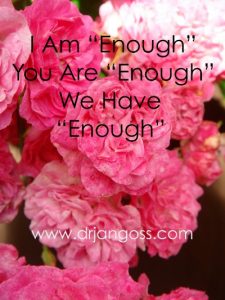Keeping it Simple
Surely life isn’t meant to be as busy or complicated as we make it. I can remember going to Wales a few years ago and noticing the difference in the way people (generally) approached life – a bit of painting here and there, sitting in the garden drinking tea, taking time to chat with people in the street – there was a mindful quality to life and people had time for one another, there was a great sense of community combined with a lack of urgency. People seemed more at peace with themselves and the world.
That is in stark contrast to a comment a friend made on the pace of life in London, when he visited recently: ‘they all look like they are 10 minutes late for wherever they are going!’ He’s got a point and I know when I’m in London it is so easy to get caught up in that frenetic pace of life. Mind and body racing in unison!
When we take the time to move more slowly, more mindfully, in a considered and attentive manner, our mind slows down too – mind and body are not separate entities as Descartes’ legacy would have us in the West believe. They are truly connected, intimately intertwined and how we treat one, inevitably affects the other. Rushing physically, perpetuates a busy mind and the worldview of scarcity and lack that goes with ‘not having enough’ (time, money etc). We regard time, like we regard money – we spend it, save it, squander it and invest it. If we are not mindful of our actions we can get caught in a cycle of chasing after time, which just results in us feeling depleted. Whereas when we ‘take’ our time, it is as if time itself slows down and we connect more fully with the joys of the present moment.
Our global obsession with consumption is also a mark of the attitude of paucity that prevails. We chase after the material to fill the “spiritual” void as though it will solve all of our problems and ameliorate our existential crises, as though we will feel better about our self with that new [fill in the blank]. Being mindful means being mindful of what and how we consume too, it isn’t just about the breath, it is considering the impact we have not only on our own body and mind, but also on other beings and the Earth.
Practising mindfulness gives us the break from routine that we need to see things from a different, calmer, more abundant perspective. It enables us to see that we are enough, and have enough. It enables us to enjoy what we have, rather than chasing after something more, whether that is consumer goods, relationships, qualifications or experiences. An ‘attitude of gratitude’ and appreciation is only really possible when we stop hankering after something more and feel content with what we have.

